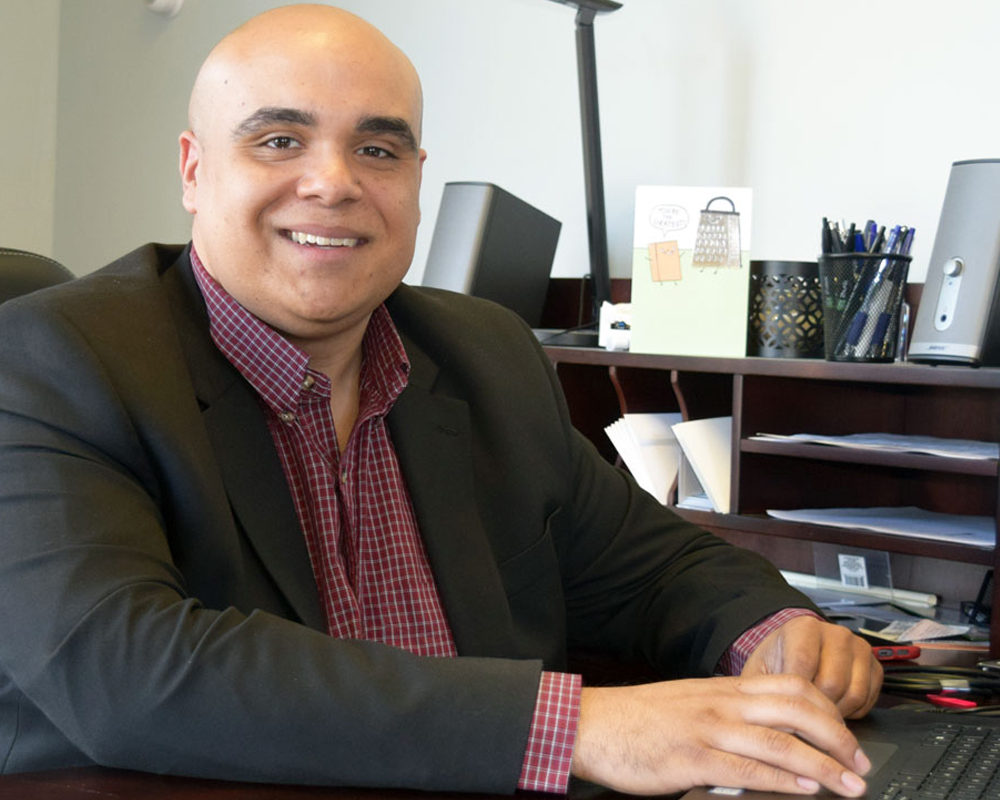Jason Amenda’s twin careers cover tax preparation and IT consulting

Now that April 15 has passed, Jason Amenda can get a little more sleep.
“In tax season, I can start at 7 a.m. and go to 11 p.m., midnight or 1 a.m.,” said Amenda, principal at Stratford-based Barnum Tax LLC.
But that”™s not to say Amenda will be resting too much in the coming weeks. “As soon as April 15 hits, I do more computer engineering,” he said.
Amenda is referring to Barnum IT, a computer consulting business that he runs simultaneously with Barnum Tax. While it is not uncommon for an entrepreneur to run two businesses at the same time, Amenda acknowledged that “except for the analytics and the number crunching involved,” his twin projects have no common ground. Indeed, the companies take turns monopolizing his time.
“I probably devote 80% of my time to taxes in tax season and the 20% to the computer work,” he added. “After April 15, it gets switched to 80% computer and 20% tax.”
Adding to the fun was the unlikely manner in which Amenda decided to become his own boss.
“Back in 1993, I was Tom Thumb in the Barnum Festival, so that”™s why I carried out the Barnum name,” he explained. “The people I met through the Barnum Festival inspired me to do better in life and take on the role of entrepreneurship. The ringmaster in 1993 was Mickey Herbert and I followed him along,” he noted, referring to the former Bridgeport Bluefish owner and former chief executive of the Bridgeport Regional Business Council.
Amenda”™s original career focus was in IT and he initially came to tax preparation as a favor to friends who needed help deciphering their 1040s. From that, he began getting referrals for help and opted to form an LLC in 2015, focusing on offering a cost-effective service.
“I found that a lot of income tax preparation companies like H&R Block and some of those bigger names charged a lot,” he said. “So, I tried to price myself as an affordable option for individuals and small businesses.”
This year”™s tax season found Amenda offering more in-depth explanations to his clients of how the recent changes in the tax code resulted in very different returns.
“It was interesting,” he said. “Most people made a little more money in 2018 and withheld a little less money. But they made less money in 2017 and withheld more money, so their returns were larger for 2017. One thing that people got hit hard with was the property tax cap. For example, I have clients that may deduct $16,000 in taxes paid, but this year they can only do $10,000.”
Amenda also needs to patiently explain that some schemes being hatched for tax purposes are never a good idea.
“A lot of people want to either take someone”™s kid or they want to give the kid away,” he observed. “When there are situations with earned income credit, there is a limit to the amount of money you can make. If someone is making too much money, they could say, ”˜Hey, can I give my child to my sister who is making only $25,000 and earn the credit and split whatever it is?”™ When I hear things like that, I say, ”˜We can do things the correct way or I”™m sorry but you”™ll have to take your business somewhere else.”™ ”
Amenda has found himself offering tax advice to members of the so-called “gig economy.” For Amenda, these workers often fail to accurately estimate what their tax bill will be.
“You need to plan on what you think you”™re going to make, which is sometimes next to impossible,” he advised. “I tell my clients that you need to estimate quarterly. So, 15 or 20 days before the quarter closes, look at what you have for invoices and what kind of money you”™ve brought in for your business and we can estimate based on last year”™s estimated payments for what you were doing and this year”™s tax code on what you should be doing every quarter.”
A similar problem occurs with some smaller businesses. “What a lot of businesses don”™t do is look at their revenue quarterly,” Amenda continued. “They look at it at the beginning of the year and say, ”˜OK. Let”™s break this into four payments.”™ But when they come to see me at tax time, there is a big surprise because they either didn”™t withhold enough or they withheld too much, which is fine because they get the money back.”